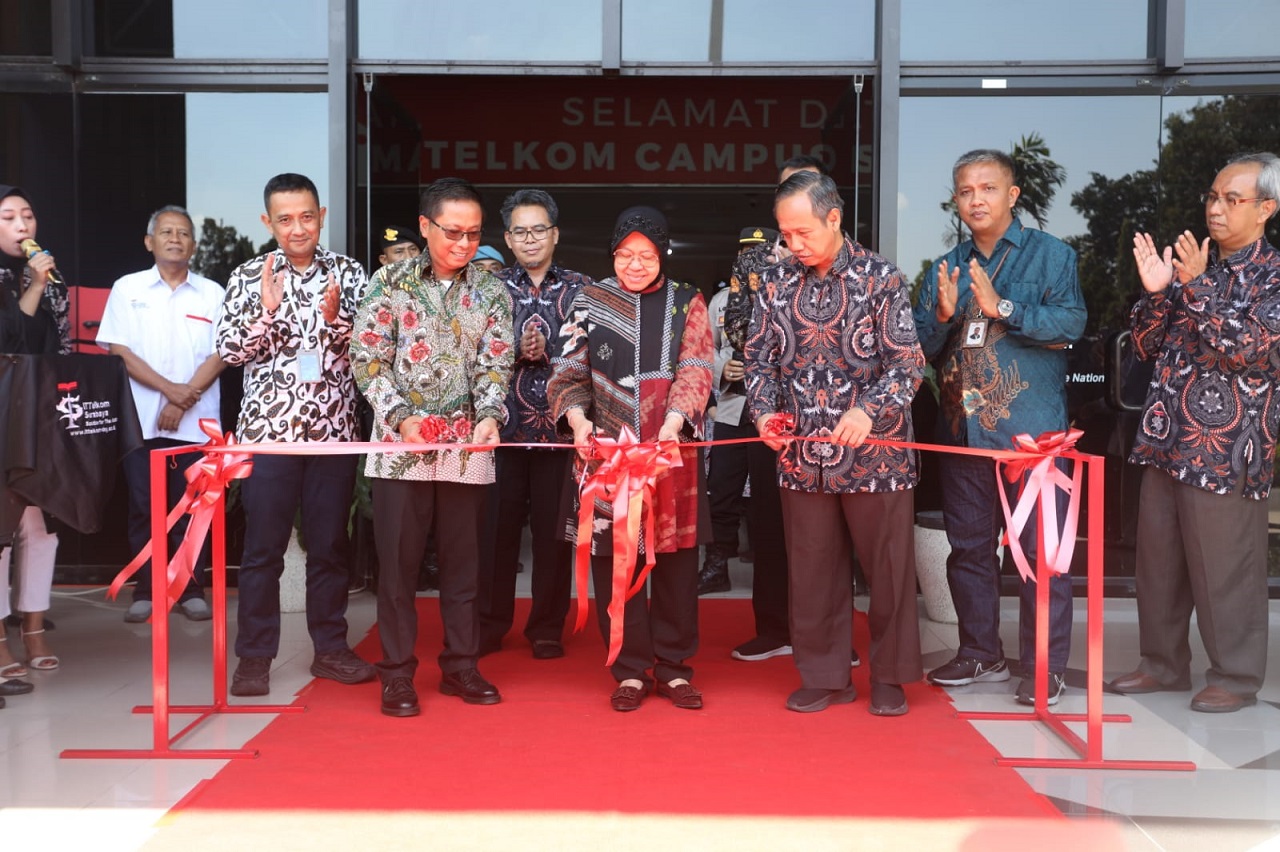SURABAYA (22 May 2023) – The outermost, remote, and least developed (3T) regions, such as Papua, are associated with a variety of limitations. Despite their abundant resources, a lack of development delays their pursuit of prosperity.
The challenge for developing the 3T regions is the topography and location of areas that are difficult to reach. To overcome this, Minister of Social Affairs Tri Rismaharini initiated a community empowerment program through innovation and the application of technology.
To expedite progress in social welfare development in Indonesia's 3T areas, particularly in Eastern Indonesia, the Ministry of Social Affairs (MoSA) is forming partnerships with universities. Most recently, the MoSA worked with the Institut Teknologi Telkom Surabaya (ITTS).
The Minister underlined to the ITTS leaders and academic community the importance of ITTS in developing technology that will benefit Papua and other 3T regions by overcoming various obstacles.
"Actually, (campus involvement) is a request from us (the Ministry of Social Affairs) since it is to solve (different difficulties in the 3T regions), the first of which is the problem of transportation, particularly goods transportation. That is why there is a place for items on the motorcycle (which will be used to access the 3T region)," she explained after delivering a public lecture to students at the ITTS Campus on Monday (22/5).
During her visit at ITTS, the Minister observed an ITTS-designed electric motorcycle. This two-wheeled vehicle was purposefully constructed with a semi-trail body to allow it to travel over both asphalt roads and rocky terrain. This motorcycle, with a driving power of 3,000 watts, can ride at 120 km/h on inclines.
There is also a controller that can be adjusted to meet specific demands. This motorcycle is environmentally beneficial because it emits no smoke or noise and is powered by a 72-volt, 30-amp battery. The Minister requested that the motorcycle be constructed primarily for transporting people and products, so that this semi-trail motorcycle has a 2-style side box in the back that can carry items weighing more than 100 kg.
"Transporting things to the mountains is quite expensive. So everything is pricey. That is why we originally requested an electric motorcycle capable of traversing mountainous terrain in Papua," the Minister stated.
The Minister stated that ITTS had completed 27 electric motorcycles and was currently undergoing feasibility testing with the Ministry of Transportation. "It's done. This morning, I called the Minister of Transportation about the practicality of this motorcycle. He will be ready to assist us with that feasibility. We will give the motorcycle to our brothers and sisters in Papua," she said.
Meanwhile, to address fuel shortages, the Minister announced that ITTS had developed a portable solar-powered charging station that could be readily disassembled. The electric charging station that will be erected has a power output of 1.1 kW.
"We will calculate the charging port later to avoid wasting it. Because taking things to Membramo, Yahukimo, Puncak Jaya and Tolikara cannot be accessed by land. That is why the charging station is easily removable and portable. Later, we will take it there with a small plane," the Minister said.
The next collaboration is to create solar electric stoves, which will be distributed to the community in Krayan, Nunukan, North Kalimantan. "Krayan is in North Kalimantan." Their home shares a border with Malaysia. That is why people are having trouble acquiring gas to cook," remarked the Minister of Social Affairs.
Traveling to Krayan can only be done by small plane, and because there is no land access, logistical transportation such as gas is highly expensive. This scenario prompted the Minister of Social Affairs to request that ITTS Chancellor Tri Arief Sadjono create an innovative solar electric stove design. “We attempted to address the case. At the time, the Chancellor and I discussed making a solar electric stove. Thank God it's finished," she said.
Solar electric stoves are thought to offer a solution to Krayan people's difficulty in obtaining gas, given that Indonesia is a tropical country with relatively abundant sunlight.
Previously, MoSA worked with ITTS to install solar panels at Rumah Sehat Doyo Baru in Sentani Papua. The Chancellor of ITTS went directly to install solar panels, which powered 76 housing units for flash flood evacuees.
For this dedication, the Minister of Social Affairs presented awards to the ITTS academic community for their contributions to the development of technology that benefits society.
Heru Priyanto, Vice President of Higher Education Development at Telkom Education Foundation, and Nusra Djatmiko, Executive Vice President of Telkom Regional V East Java Bali, were also in attendance.
 Bahasa
Bahasa
 English
English


